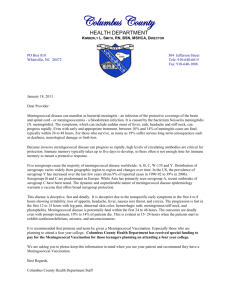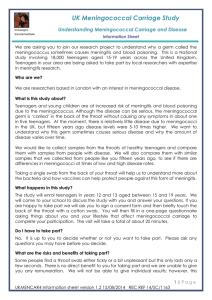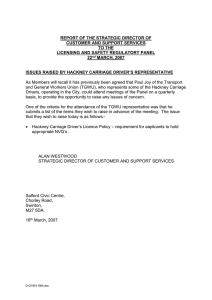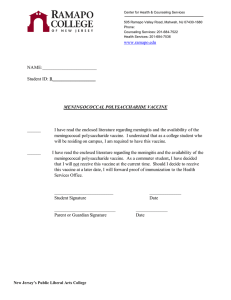vaccines more effectively reduce nasopharyngeal carriage of N
advertisement
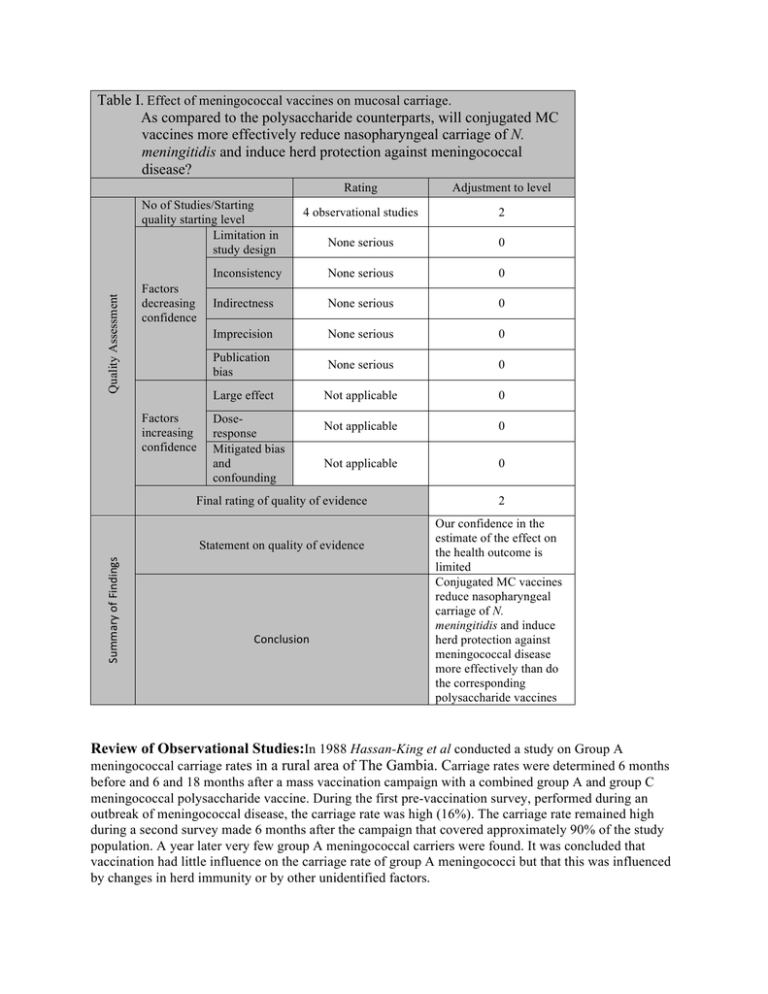
Table I. Effect of meningococcal vaccines on mucosal carriage. As compared to the polysaccharide counterparts, will conjugated MC vaccines more effectively reduce nasopharyngeal carriage of N. meningitidis and induce herd protection against meningococcal disease? Rating Adjustment to level 4 observational studies 2 None serious 0 Inconsistency None serious 0 Indirectness None serious 0 Imprecision None serious 0 Publication bias None serious 0 Large effect Not applicable 0 Not applicable 0 Not applicable 0 Quality Assessment No of Studies/Starting quality starting level Limitation in study design Factors decreasing confidence Factors increasing confidence Doseresponse Mitigated bias and confounding Final rating of quality of evidence Summary of Findings Statement on quality of evidence Conclusion 2 Our confidence in the estimate of the effect on the health outcome is limited Conjugated MC vaccines reduce nasopharyngeal carriage of N. meningitidis and induce herd protection against meningococcal disease more effectively than do the corresponding polysaccharide vaccines Review of Observational Studies:In 1988 Hassan-King et al conducted a study on Group A meningococcal carriage rates in a rural area of The Gambia. Carriage rates were determined 6 months before and 6 and 18 months after a mass vaccination campaign with a combined group A and group C meningococcal polysaccharide vaccine. During the first pre-vaccination survey, performed during an outbreak of meningococcal disease, the carriage rate was high (16%). The carriage rate remained high during a second survey made 6 months after the campaign that covered approximately 90% of the study population. A year later very few group A meningococcal carriers were found. It was concluded that vaccination had little influence on the carriage rate of group A meningococci but that this was influenced by changes in herd immunity or by other unidentified factors. In 1999 Maiden et al conducted carriage studies on group C meningococci in 14,000 students aged 15-17 years. The surveys were conducted during and after meningococcal group C conjugate vaccine introduction. Carriage was reduced by 66%. Subsequently, Maiden et al conducted another crosssectional surveys of meningococcal carriage in over 16000 students of the same age group attending school or college. A reduction in serogroup C carriage (rate ratio, 0.19) was observed that lasted at least 2 years with no evidence of serogroup replacement. Vaccine efficacy against carriage was 75%. The impact of vaccination with MCC vaccine on the prevalence of carriage of group C meningococci was consistent with herd immunity. High vaccine efficacy against disease in young children, who were not protected long-term by the schedule initially used, is attributed to the high vaccine efficacy against carriage in older age groups. In 2007, Dellicour S et al. published a systematic review on the impact of meningococcal vaccination on pharyngeal carriage of meningococci. Of the 29 studies that satisfied the inclusion criteria. 25/29 reported the effect of a polysaccharide vaccine, 1/29 the effect of a serogroup C conjugate vaccine and 3/29 the impact of serogroup B outer-membrane vaccines on overall and/or serogroup-specific meningococcal carriage rates. Ten studies of meningococcal polysaccharide vaccines found reduced serogroup-specific carriage; seven of these focussed on high-risk groups and had a short follow-up period. Only one of five studies of civilian populations in Africa showed a significantly reduced carriage. Many studies had methodological shortcomings. The one study which assessed the effect of a meningococcal conjugate vaccine on carriage showed a significant impact. Three studies of serogroup B outer-membrane protein vaccines showed no effect on carriage. References: 1.Hassan-King MK, Wall RA, Greenwood BM. Meningococcal carriage, meningococcal disease and vaccination. J Infect. 1988 Jan;16(1):55-9. 2.Maiden MC, Stuart JM. Carriage of serogroup C meningococci 1 year after meningococcal C conjugate polysaccharide vaccination. Lancet. 2002 May 25;359(9320):1829-31. 3.Maiden MC, Ibarz-Pavon AB, Urwin R, Gray SJ, Andrews NJ, Clarke SC, et al. Impact of meningococcal serogroup C conjugate vaccines on carriage and herd immunity. J Infect Dis. 2008 Mar 1;197(5):737-43. 4.Dellicour S, Greenwood B. Systematic review: Impact of meningococcal vaccination on pharyngeal carriage of meningococci. Trop Med Int Health. 2007 Dec;12(12):1409-21.
